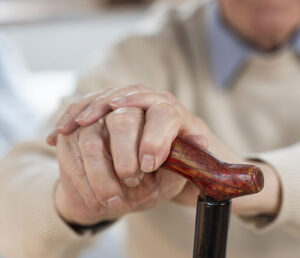On January 1, 2015, 755 ILCS 5/4a-5, et seq., became effective in Illinois. Commonly referred to as the Caregiver Statute, it created “a rebuttable presumption ...
that [a] transfer instrument is void if the transferee is a caregiver and the fair market value of the transferred property exceeds $20,000.” 755 ILCS 5/4a-10(a). Under the statute, the term “transfer instrument” includes documents such as “a will, trust, transfer on death instrument, deed, form designated as payable on death, contract, or other beneficiary designation form.” 755 ILCS 5/4a-5(3). Whether a transferee is a “caregiver” is a question for the court. Thus, the court must determine if the transferee assumed responsibility for a portion of the care of the transferor. 755 ILCS 5/4a-5(1). Additionally, the court must find the transferor “need[ed] assistance with activities of daily living.” Id. If so, the transferee is a caregiver regardless of if they assumed responsibility voluntarily or for compensation. Id. The transferor’s family members are excluded from being considered a caregiver. Id. However, if the caregiver is not a family member of the transferor, then any transfer to the “caregiver’s spouse, cohabitant, child or employee” is presumptively void as well. Id.
The rebuttable presumption described above can be overcome. 755 ILCS 5/4a-15. To do so, the transferee must prove by a preponderance of evidence that his or her share under the instrument in question was not a larger share than he or she would have received before becoming a caregiver or “by clear and convincing evidence that the transfer was not the product of fraud, duress, or undue influence.” Id. In the event a caregiver unsuccessfully tries to overcome the presumption, he or she “bears the costs of the proceedings, including, without limitation, reasonable attorney’s fees.” 755 ILCS 5/4a-25.
Recently, HRBK successfully defended a will by utilizing the Caregiver Statute. After a 2008 will was admitted to probate, the Petitioner/alleged “caregiver” contested the decedent’s 2008 will with a 2017 Will that purported to bequeath property exceeding $20,000 to her and her husband. At an evidentiary hearing that spanned three days, HRBK showed Petitioner assumed the role of being decedent’s caregiver prior to the date of the 2017 will she sought to admit. Additionally, when Petitioner attempted to overcome the rebuttable presumption, HRBK showed that not only did the Petitioner fail to overcome the presumption that the 2017 will was the result of fraud, duress or undue influence, HRBK affirmatively proved that the 2017 will in fact was the result of her undue influence over Decedent.
*Marci M. Shoff and Melinda L. Mannlein tried this case. The assistance of Bryant S. Lowe, a law clerk with HRBK during the trial and preparation of this article, is gratefully acknowledged.



